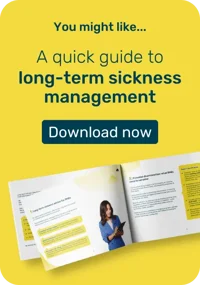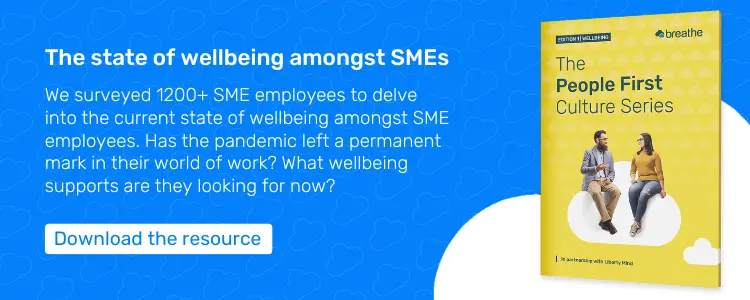As before, with mental health conditions, this may aggravate the situation. But even with other illnesses, you may be encouraging a staff member to return who is still contagious.
While you get one employee back a day or two early, they may well not be very productive if they are still feeling under the weather. Equally, you could also risk other staff members catching the illness and then being absent for several days each.
4. Contacting employees while they're off sick proliferates the 'always on' culture
Breathe's sick report also found that more than half (52%) of UK employees answer work emails whilst they were off sick or away on annual leave. This “always on” culture is prevalent in today’s business world. We’re glued to our technology and this makes it easy to tap out a quick email reply on the train home or to check for messages just before we go to bed.
But this sort of continual connection to our working lives is not good for us. Being available like this makes us put extra pressure on ourselves, which is not good for long-term productivity, motivation and sometimes health.
5. The employee off sick may not be able to help anyway
If you’re contacting employees whilst off sick with the hope of them helping out – giving you some crucial information, or advising on their area of specialisation – then it’s quite possible that they may not even have the information you need. They certainly won’t have any documents or files at home with them, and it’s very possible that they may have trouble remembering the precise information you are after.
6. It’s simply not fair - and could be seen as harassment
Many people are happy to be contacted while they’re off sick. But it does to some extent depend on why they’re off. If they’re recovering from a foot operation, then a call with the boss isn’t going to be too taxing. But if they have full-on flu, they may not even be able to take a call.
The bottom line is that it’s not up to you to determine why they are off sick, or if their reasons are genuine or not (until they return, maybe). It is, however, your place to give them the space and time to recover and to not place undue burdens on them when they are off sick.
Can contacting an employee while they're off sick be considered harassment?
Although there are no laws forbidding employers contacting their employees while they’re off sick, it can become excessive if some boundaries aren’t clearly established.
How to ensure contacting employees off sick doesn't look or feel like harassment
It’s natural for employees to feel like they are being harassed if they’re getting 1,001 questions while they’re off. Equally, employers can feel uncomfortable contacting employees on sick leave for fear of harassing them while they recover.
But it doesn’t have to be that way—you just need to establish some simple expectations for both parties.
1. How often should the employer contact the employee?
It’s important for employers to keep in contact with employees while they’re off sick. It’s just a question of how often—and this will depend on the type of leave the employee is on.
Sensitive and previously arranged contact can often put a longer-term sick employee at ease and stop them feeling isolated and out of touch. Facilitating the logistics of a smooth return to work is easier when there has been some level of contact throughout the absence.
2. How will the employer be contacting the employee?
Consider the best approach for all parties. Is it best to contact them over the phone? Over email? Or face-to-face (particularly if it’s over a long period of time)?
3. Who will be contacting the employee while they’re on sick leave?
Keeping the conversation to one consistent contact is good for both the employee, and the employer. The employee then knows exactly who to contact if need be, and can trust that this one person will have the full picture of their situation. After all, no-one likes having to re-explain themselves time and again to different people.
For employers, having one consistent contact for the employee off sick means it's clear who is responsible for maintaining that contact, and keeping the business updated. Most of the time, this person will be the manager of the employee on sick leave.
Put people, their health and wellbeing first
Bottom line, you should always exercise caution before you contact an employee whilst they're off sick. First, assess why you need to contact them, what impact it will have and whether it can wait.
Of course, there are always some situations when it is necessary to contact staff who are off sick. If, for example, you’re undergoing changes that could have resounding consequences on the individual or the business, then it would be wise to get in touch. Equally, maintaining regular, arranged contact with employees off sick will help many feel valued and not forgotten.
And that can all add up to making a world of difference to your company culture and the wellbeing of the people who make up your company.


 Want to promote mental
Want to promote mental 



.webp)

